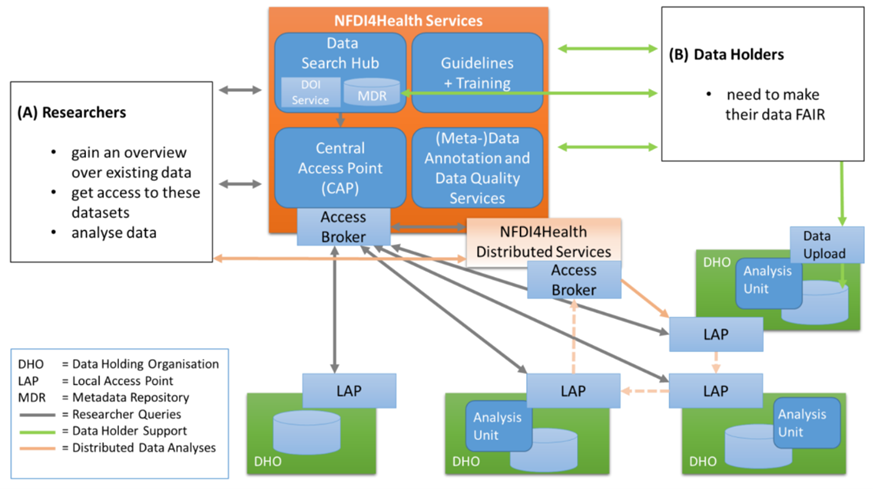The vision of NFDI4Health is to establish a comprehensive and sustainable research data infrastructure for personal health data in Germany, facilitating advancements in medical research and public health while ensuring compliance with ethical standards and data protection regulations.
In recent years, the proliferation of health-related data from clinical trials, epidemiological studies, and public health surveys has underscored the need for a unified infrastructure that enables secure and efficient data sharing. Personal health data are particularly sensitive and require stringent privacy protections, which often hinder their accessibility and interoperability. NFDI4Health aims to address these challenges by promoting the FAIR principles (Findable, Accessible, Interoperable, Reusable) in health data management.
The overarching objective of NFDI4Health is to develop, implement, and maintain a national research data infrastructure that enhances the findability and accessibility of structured health data. This includes creating a federated framework for data-holding organizations, facilitating data exchange and record linkage in compliance with privacy regulations, and establishing automated services such as search and analysis tools. By fostering interoperability and reusability of data, NFDI4Health seeks to support collaborative research efforts across various health-related disciplines.
NFDI4Health represents the clinical and epidemiological research communities in Germany, encompassing a multidisciplinary consortium with expertise in medicine, epidemiology, law, informatics, and statistics. In its initial phase, NFDI4Health focuses on integrating data from clinical trials, epidemiological studies, and public health surveys, aiming to create a harmonized and accessible repository of personal health data to advance medical research and improve public health outcomes.
